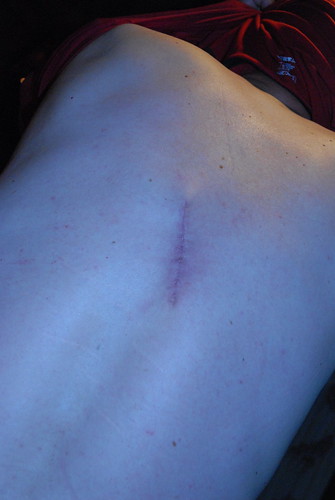Skin cancer is the most common type of cancer in the world. Over 2 million cases of this disease are diagnosed each year and if not detected early it can lead to surgery and even death. Every year between 40 and 50% of all cancer cases are diagnosed as skin cancer. There are two main types of skin cancer; malignant melanoma and non-melanoma. The most common types of non-melanoma cancer are Basal cell carcinoma and Squamous cell carcinoma, and approximately 79% of Malignant Melanoma cases relate to deaths. These cancers account for only 4% of all skin cancer cases but are by far the most dangerous. Melanoma is more likely than non-melanoma to spread to lymph nodes and other parts of the body. It is estimated that over 12 thousand people with some type of skin cancer will die this year.

The skin is the largest organ of the human body, measuring approximately twenty square feet for the average adult. It can be considered as the most resilient organ in the human body. The skin is divided into layers; the Epidermis (upper most), the Basement Membrane, the Dermis, and the Hypodermis/Subcutis. It covers the internal organs and bones and protects them from injury and germs, and prevents the loss of too much fluid. The skin is vital in the control of body temperature and it gets rid of some wastes through perspiration. Certain cells in the skin communicate with the brain to allow temperature, touch, and pain sensations.
Skin cancer is the uncontrolled growth of abnormal skin cells that when left unchecked, spread from the skin to other tissues and organs of the body. More cases of skin cancer are being diagnosed as time goes on. Studies have shown that heavy exposure to the sun's ultraviolet radiation (UVR) lead to skin cancer and other skin problems. These studies have shown that 65 to 90% of melanomas are caused by over exposure to ultraviolet light (sunshine, tanning beds and tanning lights), but it has also been shown to run in families and may also be genetic.
The second most common form of skin cancer is Squamous cell carcinoma (SCC), and approximately 700,000 cases are diagnosed each year with approximately 2,500 deaths. It is one of the less aggressive skin cancers in that when detected early it may be easily controlled or removed through minor surgery. This cancer is an uncontrolled growth of abnormal cells arising in the Squamous cells, which compose most of the skin's epidermis (upper layers).
This type of cancer is mainly caused by cumulative UVR exposure over the course of a lifetime and may not occur until many years after receiving the original damage to the skin, which makes it necessary to see a dermatologist at its first signs. The most common areas for this cancer are those that are frequently exposed to the sun, such as the rim of the ear, lower lip, face, bald scalp, neck, hands, arms and legs. Skin damage can appear as wrinkling, changes in pigmentation, and loss of elasticity in the skin.
Exposure to UVR s the cause for most cases of Squamous cell cancer. The condition develops due to the fact that UV radiation damages the DNA in an individual's skin cells. The more damage to the DNA, the more likely the skin cells will grow out of control and develop a Squamous cell carcinoma. Most cases of Squamous cell cancer may be prevented, and there are several ways to do this; by applying sunscreen, wearing protective clothing, avoiding midday sun, limiting your time in direct sunshine, don't use tanning beds or lamps, and checking your skin regularly.
Squamous cell cancer is a easily treatable and preventable type of skin cancer. However, it can still be deadly and needs to be detected and treated early. Squamous cell cancer very rarely causes further problems when identified and treated early. Untreated, it can grow large or spread to other parts of your body, causing serious complications. Call for an appointment with your health care professional if you observe a sore or spot on your skin that changes in: appearance, color, size, texture, or if an existing spot becomes painful or swollen, or if it starts to bleed or itch.
Evelyn and Don are co-owners of Ladies Hair Care By ED where they offer a selection of all natural organic/herbal products for hair, health and skin care. Visit them at http://www.ladieshaircarebyed.com and discover the quality selections they have for the health and care of your body.
Article Source: http://EzineArticles.com/?expert=Donald_Willey
http://EzineArticles.com/?The-Second-Most-Common-Skin-Cancer&id=7295059

No comments:
Post a Comment